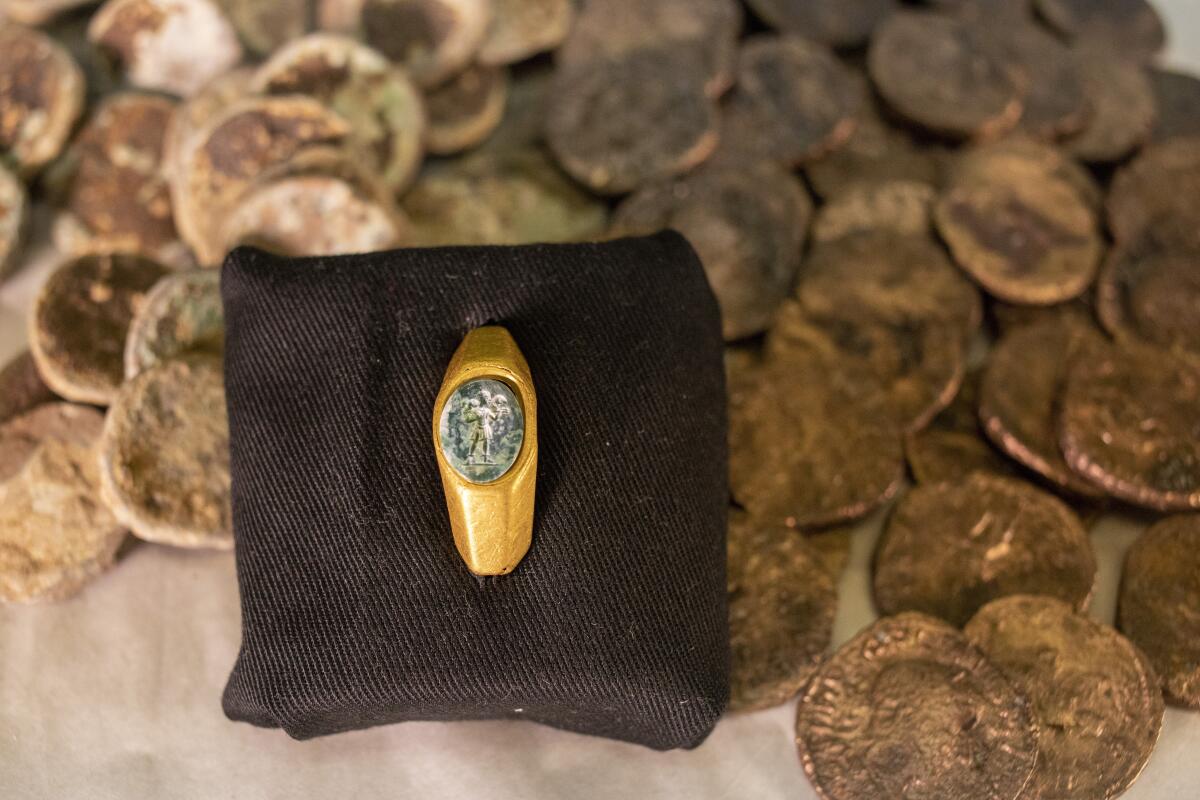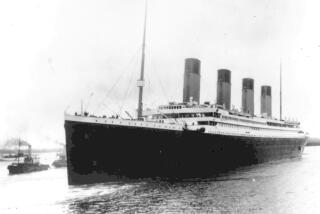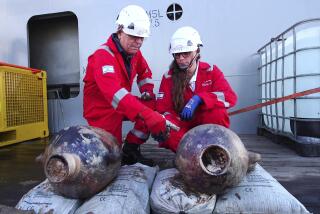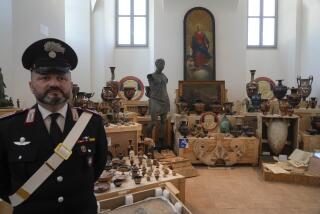Israeli archaeologists find treasures in ancient shipwrecks

- Share via
JERUSALEM — The Israel Antiquities Authority announced Wednesday the discovery of remnants of two shipwrecks off the Mediterranean coast, replete with a sunken trove of hundreds of Roman and medieval silver coins.
The finds made near the ancient city of Caesarea were dated to the Roman and Mamluk periods, around 1,700 and 600 years ago, archaeologists said. They include hundreds of Roman silver and bronze coins dating to the mid-third century, as well as more than 500 silver coins from the Middle Ages found amid the sediment.
They were found during an underwater survey conducted by the IAA’s Marine Archaeology Unit in the last two months, said Jacob Sharvit, head of the unit.
Among the other artifacts recovered from the site near the ancient city of Caesarea were figurines, bells and ceramics, as well as metal artifacts that once belonged to the ships, such as nails and a shattered iron anchor.
The IAA made its announcement just days ahead of Christmas, and underscored the discovery of a Roman gold ring, its green gemstone carved with the figure of a shepherd carrying a sheep on his shoulders.
Robert Kool, head of the authority’s coin department, called the item “exceptional.”
“On the gemstone is engraved an image of the ‘Good Shepherd,’ which is really one of the earliest symbols of Christianity,” he said.
Sharvit said that the Roman ship is believed to have originally hailed from Italy, based on the style of some of the artifacts. He said it remained unclear whether any remnants of the wooden ships remained intact beneath the sands.
More to Read
Sign up for Essential California
The most important California stories and recommendations in your inbox every morning.
You may occasionally receive promotional content from the Los Angeles Times.










